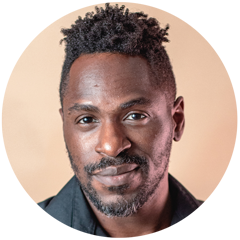Do Black Lives Matter?
This piece was originally written for Voice.com as part of the Voice Creator Incubator Program
Pictured: New York City - November 25th 2014 - Protest of the verdict in the police killing of Michael Brown, Ferguson, Missouri
We have seen what history looks and sounds like when written predominantly by white people in positions of power and authority. The question now becomes what will our future look and feel like when manifested and created by Black people, the marginalized, the oppressed, and the disenfranchised, in positions of support and leadership? What new stories will our history tell when we are in charge of writing our own narrative?
To me, this is what the Black Lives Matter (BLM) movement stands for…
To understand the power of the BLM movement is to understand death itself, to have endured all the stages of grief repeatedly, to feel broken and defeated, to succumb to powerlessness and hopelessness under the unrelenting weight of discrimination, prejudice, racism, and injustice. This is not something you can simply intellectualize, this is something you must suffer and experience.
BLM is a living obituary, a death march, a raging battle cry, a silent protest, and yet also a boastful testament from the other side of America. We are still here! No matter how many times, no matter how many ways we are victimized, brutalized, or enslaved, we are still here! This country was, and still is, quite literally built on our backs, built on our blood, and built on our sweat and tears. We matter, then and now. The truth is we have always mattered, and we have mattered more than most (with the exception of Indigenous people) within the context and history of this country. That is why our lives are precious, that is why our lives matter. We should not and will not be relegated to some footnote, some sidebar, some unmarked tomb, some poorly contrived month of stagnating celebrations and activities.
Side note: I wonder how many police shootings of Black people occur during Black History Month?
As I’ve said many times before, being African, “I am no less proud of my heritage or myself, but now I’m conscious, cautious, and overly aware. I think twice about going out for a jog at night, I try not to wear loose or baggy clothing when grocery shopping, I try to stay in plain view when walking behind or beside a police officer in the streets or subway…In some ways you could say from the moment I leave my front door till the moment I get back home I’m actively trying to avoid falling into ‘accidental’ moments of racism, and even potentially becoming yet another ‘unintended’ law enforcement statistic.”
My first real and in-person encounter with the BLM movement was on an autumn night in New York City. November 25th 2014. Most Black people will remember that as the day after the verdict was read in the police killing of Michael Brown in Ferguson, Missouri. Many of us had been transfixed by this insane and unbelievable event playing out on our TV screens, myself included. By the end of it I needed an outlet, some way to vent my frustration, sadness, and unease. I went for a walk. I had no direction planned, no destination in mind, and yet as I turned the corner of 3rd Avenue onto St Marks Place and heard the chanting “No Justice, No Peace, No Racist Police,” I knew I had arrived.
I felt seen, I felt heard, I was touched and I was moved. Notably, the wave of protesters that absolutely consumed me was filled with people of all ages, all races, all genders, all orientations, and at least in New York City this one night, it felt like a change was coming. As many of you already know, since that very day, we’ve sadly lost many others: Eric Garner, Laquan McDonald, Tamir Rice, Freddie Gray, Jamar Clark, Anton Sterling, Philando Castile, Sandra Bland, Diamond Reynolds, Charles Kinsey, Ahmaud Arbery, George Floyd, Breonna Taylor to name a few you might actually know…
Change is slow, and change takes time. It requires the strength and resilience, the anger and the pain of those most affected by the hurt to give rise to a new normal…meanwhile we mourn. Henceforth, we can not and do not entrust our future to the very people that would oppress us or are too complacent to care. This is not something you can intellectualize, this is something you must suffer and experience.
If not for the Black Lives Matter movement, one of the most significant vehicles for real institutional and systemic change since the Civil Rights movement, how much further from our goal of equity, equality, freedom and justice would we be? I leave you with that question, and I encourage you to share your thoughts with me.

